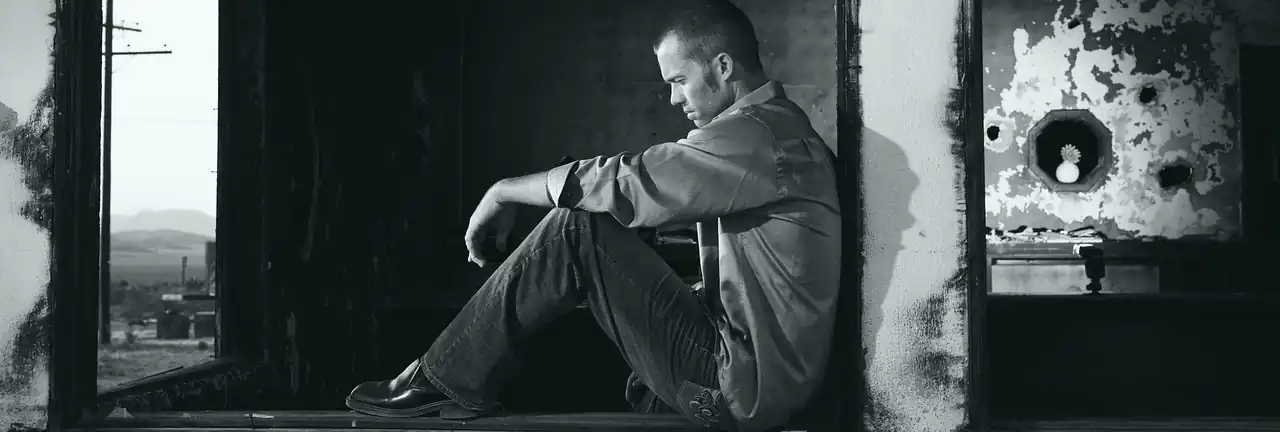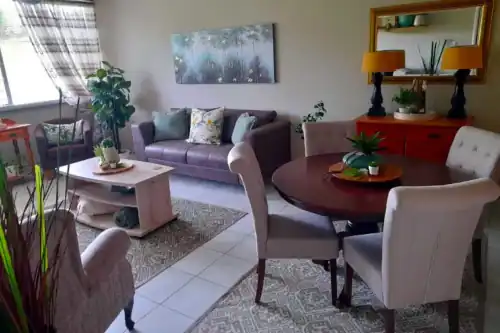We ask key questions and look at answers about Anxiety and Depression.
Anxiety and depression: two silent shadows that can creep into anyone’s life, regardless of age. While often associated with younger generations, these mental health challenges can significantly impact the lives of South Africans of all ages, including those approaching or enjoying retirement.
We understand that navigating life’s later chapters can be filled with uncertainties and challenges. Perhaps you’re a working professional in your thirties, contemplating the future and feeling overwhelmed. Or maybe you’re a retiree seeking ways to enhance your golden years. Regardless of your stage in life, understanding anxiety and depression is crucial for maintaining overall well-being.
Building on our previous discussions about Alzheimer’s disease and specialized memory care, we now turn our attention to the mental health aspects of ageing. This post aims to shed light on the complexities of anxiety and depression, providing insights into their symptoms, potential impact, and strategies for management, particularly within the context of retirement and older age.
By the end of this article, you’ll have a clearer understanding of these conditions, enabling you to recognize potential signs in yourself or your loved ones. We’ll explore strategies for managing anxiety and depression, as well as the role of retirement homes and frail care facilities in supporting those affected.

A Close Link: Anxiety and Depression
Anxiety and depression are often intertwined, creating a complex interplay that can significantly impact a person’s well-being. These conditions frequently coexist, with symptoms that overlap and can intensify one another. It’s essential to understand this relationship to recognize the signs and seek appropriate support.
Comorbidity: This term highlights the common occurrence of anxiety and depression together. Many individuals experience both conditions simultaneously, making it challenging to differentiate between the two.
Shared Symptoms: Both anxiety and depression share common symptoms, which can further complicate diagnosis. These include restlessness, irritability, sleep disturbances, and changes in appetite. These overlapping symptoms can make it difficult to determine the primary condition or if both are present.
Mutual Reinforcement: A vicious cycle can develop between anxiety and depression. Anxiety can escalate into depressive symptoms, while depression can amplify feelings of worry and unease. This cyclical relationship can make it increasingly difficult to manage both conditions.
Common Risk Factors: Several factors contribute to the development of both anxiety and depression. Genetics, brain chemistry imbalances, and life events can increase susceptibility to these mental health challenges. Understanding these risk factors can aid in prevention and early intervention.
Understanding Anxiety
Anxiety is a common human emotion characterized by feelings of worry, nervousness, or unease. It’s often a response to stress or uncertainty. While experiencing anxiety is normal, it becomes a problem when it’s excessive, persistent, and interferes with daily life.
Types of Anxiety Disorders
There are several types of anxiety disorders, including:
- Generalized Anxiety Disorder (GAD): Excessive worry about everyday things.
- Panic Disorder: Sudden, unexpected attacks of intense fear or discomfort.
- Social Anxiety Disorder: Overwhelming fear of social situations.
- Specific Phobias: Intense fear of specific objects or situations.
- Obsessive-Compulsive Disorder (OCD): Recurrent, unwanted thoughts (obsessions) and repetitive behaviours (compulsions).
Symptoms of Anxiety
Anxiety can manifest in various ways, including:
- Physical symptoms: Rapid heartbeat, sweating, trembling, shortness of breath, dizziness, fatigue, muscle tension, and stomach upset.
- Emotional symptoms: Feeling restless, irritable, or on edge; having difficulty concentrating; and experiencing a sense of impending doom.
- Behavioural symptoms: Avoiding situations that trigger anxiety, excessive checking or avoidance behaviours.
Depression: A Silent Struggle
Depression is a mood disorder characterized by persistent feelings of sadness, emptiness, or hopelessness. It goes beyond normal mood fluctuations and significantly impacts how you feel, think, and behave.
Symptoms of Depression
While symptoms can vary from person to person, common signs of depression may include the following:
- Mood changes: Persistent sadness, emptiness, or hopelessness.
- Loss of interest: Lack of enjoyment in activities once loved.
- Changes in appetite and weight: Significant weight loss or gain.
- Sleep disturbances: Insomnia or excessive sleeping.
- Fatigue: Lack of energy or increased tiredness.
- Difficulty concentrating: Problems with memory, focus, or decision-making.
- Feelings of worthlessness: Low self-esteem and guilt.
- Thoughts of death or suicide: These thoughts are serious and require immediate attention.
It’s important to remember that depression is a treatable condition. If you or someone you know is experiencing symptoms of depression, seeking professional help is crucial.
Anxiety and Depression in Retirement
Anxiety and depression are prevalent mental health challenges among older adults. While the exact figures are difficult to determine due to underreporting, research consistently indicates that these conditions are more common in this age group than previously thought.
It’s estimated that between 10-25% of older adults experience depression, while anxiety disorders affect approximately 12% of this population. These statistics underscore the significance of addressing mental health concerns in later life.
Many cases of anxiety and depression in older adults go undiagnosed and untreated. This is often due to the stigma associated with mental health issues, as well as misconceptions about ageing and emotional well-being.
Several factors contribute to the development of anxiety and depression in older adults. These include physical health problems, the loss of loved ones, the challenges of retirement, social isolation, and changes in cognitive function.
Recognizing the prevalence of anxiety and depression in the elderly is crucial. Early detection and appropriate treatment are essential for improving the quality of life for older adults and preventing more severe consequences.
Interesting Read:
The South African Stress and Health (SASH) study is the first large-scale population-based study of common mental disorders in the country. This paper provides data on the 12-month and lifetime prevalence of these conditions.

Anxiety and Depression in a Retirement Home Environment
A deep comprehension of the retirement home and frail care setting is essential for effectively addressing anxiety and depression among residents. The physical environment plays a pivotal role. Sensory factors, such as noise levels, lighting, and decor, can profoundly influence mood and behaviour.
Safety and security are paramount, as residents require a reassuring and protective space. Additionally, the environment should be designed to accommodate physical limitations while fostering independence.
The social dynamics within these communities are equally significant. Loneliness and isolation are prevalent challenges that can exacerbate depression. Conversely, opportunities for social interaction, including intergenerational contact, can be immensely beneficial. Peer support groups can create a sense of belonging and mutual understanding.
Routine and structure provide a comforting framework for many residents. Predictability can reduce anxiety, while flexibility is essential to accommodate individual needs and preferences. However, it’s important to recognize that these environments are often marked by significant life transitions. Loss of independence, grief for loved ones, and adjustment to new surroundings can contribute to emotional distress. Moreover, physical decline and potential cognitive changes can further complicate matters.
By carefully considering these factors, care providers can create a supportive atmosphere that addresses the unique challenges faced by residents.
It’s essential to remember that these are just general guidelines. Each individual is unique, and symptoms may vary. If you suspect that a resident is experiencing anxiety or depression, it’s crucial to consult with a mental health professional for a proper evaluation and diagnosis.
The Severity of Anxiety and Depression in the Elderly
Anxiety and depression among the elderly can escalate into serious health crises. These conditions frequently exacerbate existing physical ailments, creating a downward spiral of declining health. Social isolation, a common consequence of untreated mental health issues, deepens feelings of loneliness and despair.
Moreover, the cognitive impact of severe depression can be profound, increasing the risk of dementia.
Physical repercussions extend beyond cognitive decline. Anxiety and depression can impair balance and coordination, elevating the risk of falls and subsequent injuries. In extreme cases, these mental health conditions can precipitate suicidal ideation, particularly among older men.
While both younger and older adults experience anxiety and depression, there are distinct differences in how these conditions manifest and impact individuals.
Older adults often exhibit more somatic symptoms, such as physical pain, fatigue, and sleep disturbances. Their depression might be masked by these physical complaints, making it difficult to diagnose. Anxiety can manifest as restlessness, irritability, and difficulty sleeping.
Here are some of the potential severe outcomes:
- Increased physical health problems: These mental health conditions can exacerbate existing physical ailments, leading to a decline in overall health.
- Social isolation: Severe anxiety and depression can lead to social withdrawal, further isolating the elderly individual.
- Cognitive decline: In some cases, severe depression can contribute to cognitive decline and increase the risk of dementia.
- Increased risk of falls: Anxiety and depression can impair balance and coordination, leading to a higher risk of falls and injuries.
- Suicide risk: This is a serious concern, especially in older men.
It’s crucial to recognize that these conditions are treatable, and early intervention is key to preventing severe outcomes. A combination of medication, therapy, and supportive care can significantly improve the quality of life for elderly individuals.
What to Do if You Suspect Anxiety or Depression in a Retirement Community
Recognizing the signs of anxiety or depression in a retirement community resident is crucial. Here’s what you can do:
1. Observe and Document:
- Monitor behaviour changes: Pay attention to alterations in mood, sleep patterns, appetite, social interactions, and overall well-being.
- Keep a record: Document specific instances of concerning behaviour or statements.
2. Approach with Empathy and Concern:
- Initiate a conversation: Gently express your concern and let the individual know you’re there to listen.
- Avoid judgment: Create a safe space for open communication without blaming or accusing.
3. Encourage Professional Help:
- Suggest seeking help: Gently suggest consulting a mental health professional or the retirement community’s healthcare provider.
- Offer support: Provide information about available resources and offer to accompany the individual if needed.
4. Involve the Community:
- Inform staff: Discreetly inform relevant staff members, such as nurses or social workers.
- Create a support network: Encourage other residents to offer support and companionship.
5. Prioritize Safety:
- Assess risk: If there are signs of imminent harm to themselves or others, take immediate action.
- Contact emergency services: In case of a crisis, don’t hesitate to call emergency services.
6. Self-Care:
- Take care of yourself: Dealing with someone’s mental health can be emotionally draining. Ensure you have support and practice self-care.
Remember: You’re not alone in this. Many retirement communities have resources and trained staff to assist residents with mental health concerns. By taking proactive steps, you can help improve the quality of life for the individual and the overall community.

Managing Anxiety and Depression in Retirement Homes
Retirement homes and frail care facilities are increasingly attuned to the prevalence of anxiety and depression among their residents. A multifaceted approach is often employed to address these challenges.
Staff members undergo training to recognize the subtle signs of anxiety and depression, fostering an environment of empathy and understanding. Many facilities incorporate mental health professionals into their teams, offering therapy, counselling, and medication management.
Social and recreational activities, including support groups, are essential for combating isolation and stimulating residents. Creating a calming and safe physical environment, coupled with opportunities for exercise, contributes to overall well-being.
Effective medication management is crucial, necessitating close monitoring and collaboration with primary care physicians. Open communication between staff, residents, and families is vital. Regular assessments and care plan adjustments ensure ongoing support.
While these strategies form a strong foundation, the specific approach can vary between facilities. It’s essential for families to communicate openly with staff and advocate for their loved ones’ needs.
Modern Living Flats

Basic Cottages

Modern Comfort Cottages

Comfortable Frail Care

Closing Thoughts
Anxiety and depression can significantly impact the lives of older adults, but understanding these conditions is the first step towards managing them. By recognizing the symptoms, seeking professional help, and implementing coping strategies, individuals can improve their quality of life.
Retirement homes and care facilities play a crucial role in providing support and care for residents experiencing these challenges. Remember, you are not alone. Seeking help is a sign of strength, not weakness.
We hope this information has been helpful. Please follow us on social media for more tips and resources.
“Hope is the anchor of the soul, both steadfast and secure.” – Hebrews 6:19
Sources & Related Content:
- Mental Health Conditions: Depression and Anxiety: https://www.cdc.gov/tobacco/campaign/tips/diseases/depression-anxiety.html
- Learn About Anxiety and its Treatment and Prevention. https://www.herbtib.com/blog/learn-about-anxiety-and-its-treatment-and-prevention/
Herman, A. A., Stein, D. J., Seedat, S., Heeringa, S. G., Moomal, H., & Williams, D. R. (2009). The South African Stress and Health (SASH) study: 12-month and lifetime prevalence of common mental disorders. South African Medical Journal = Suid-Afrikaanse Tydskrif vir Geneeskunde, 99(5 Pt 2), 339. https://www.ncbi.nlm.nih.gov/pmc/articles/PMC3191537/
Somatic symptom disorder. (2024, August 5). In Wikipedia. https://en.wikipedia.org/wiki/Somatic_symptom_disorder
Thank you for your continued support, we appreciate your likes, follows and retweets on Facebook, Twitter, Pinterest and LinkedIn. Make sure to share this post with friends and family.
You can make a difference
With your assistance, the volunteers at La Gratitude will be able to take better care of not only the residents at the old age home but also the greater Newcastle community. La Gratitude is constantly involved in outreach projects to help the elderly in need in and around Newcastle.
Your donations will be greatly beneficial in the provision of food and other basic necessities for the less fortunate elderly people that require assistance.
Donating is easy, click here to donate now.







